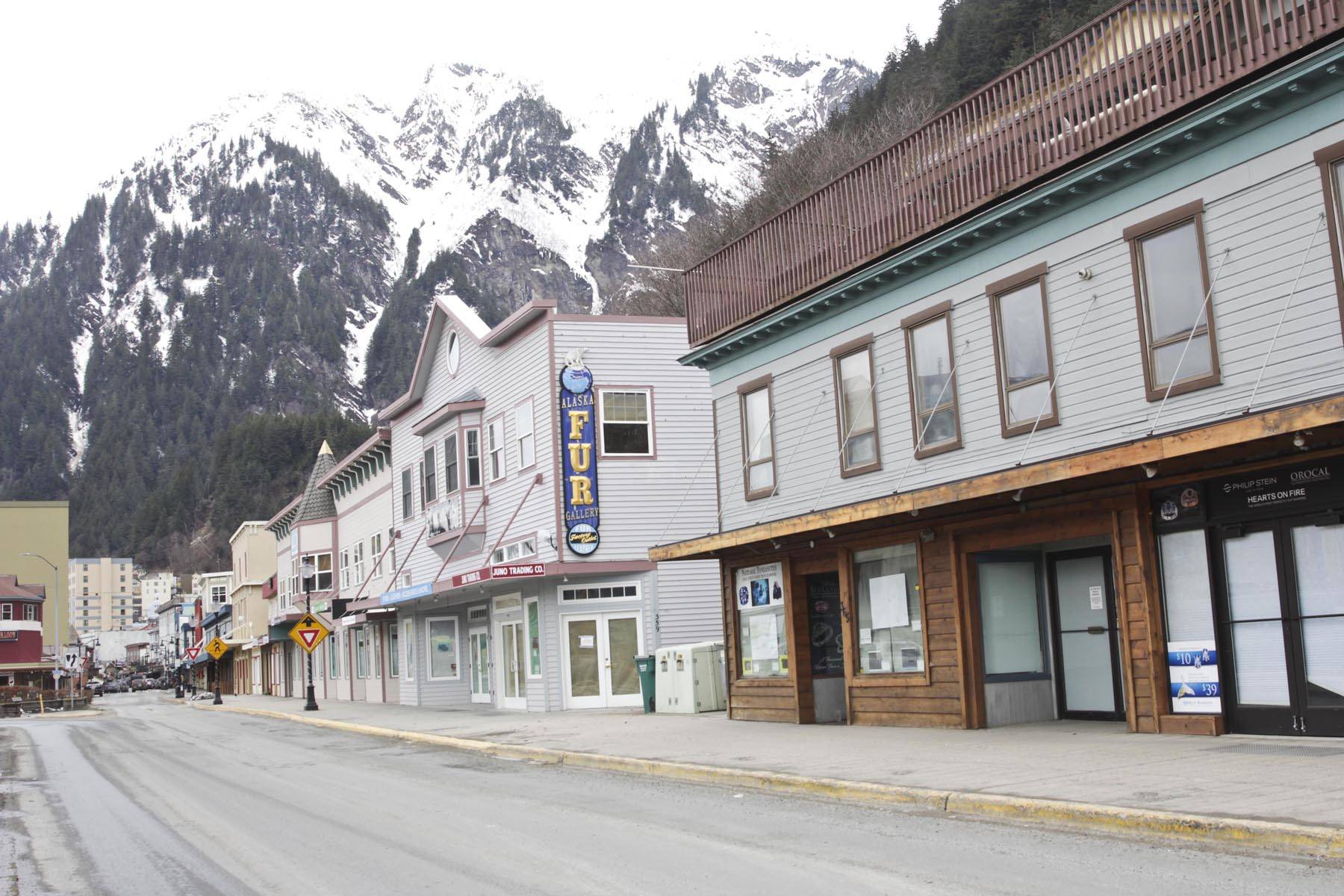The governor’s announcement that restaurants will reopen — with some caveats — was greeted with extremely cautious optimism by restaurateurs around Juneau.
“There’s two sides of this coin for me,” said Venietia Santana, owner of V’s Cellar Door. “I want to protect my customers as much as we can. We’ve always gone above and beyond safety anyway. We want our customers to be as safe as possible.”
Guidance provided to the restaurant industry specifies that restaurants should go to no more than 25% of capability, that all tables should be spaced 10 feet apart and any diners at one should come from the same family or residence.
“We’re doing reservations only,” Santana said. “It’s a double-edged sword. I want my business to be open for dining, but I don’t want to endanger anyone.”
The soft open is a good way to handle slack logistical lines and staffing issues, in addition to keeping a handle on the spread of the coronavirus, said Wade Bryson, owner of the two Subway locations in Juneau and member of the Assembly of the City and Borough of Juneau.
“I think that they’re doing it in an appropriate, methodical fashion,” Bryson said in a phone interview. “What do you do if every restaurant turns back on at once? We’d run out of food. It’s a soft open. You can fix things, figure out what’s working and what’s not working. I’m very pleased to see a slow, small step.”
Santana said she and her staff will be meeting to figure out how to restructure the interior of the restaurant and to hash out their menu. While many items are still on offer, some things that rely on fast-spoiling ingredients, like soups or salads, may not be available.
“I love our community. I love living here. I want to make sure everyone’s safe,” Santana said. “We’ll only have around six tables. We’re doing reservations so I can time people appropriately. We’re only allowing households, or familial units. It allows us to be able to control the room. I want to give everyone enough time to stay spaced apart and enjoy their dinner.”
Law and order
While some may criticize the governor’s decision to reopen restaurants this early, Santana said she’s going to do her best to balance the safety of the community with the restaurant’s need to pay its employees and serve food.
“I’m taking a risk by opening my doors not only to the people but to the criticism,” Santana said. “My suggestion to everyone is stay within their comfort zone. If you don’t feel comfortable going out to dinner or lunch, don’t go out to dinner or lunch.”
The Department of Environmental Conservation monitors restaurant health and cleanliness in Alaska, and is responsible in part for enforcing the regulations laid down by the government regarding best practices for preventing disease spread.
“Since the Governor’s Health Mandate No. 3 was issued, DEC has received seven complaints, within DEC’s authorities to regulate, of alleged non-compliance with the Governor’s Health Mandate,” said DEC public information officer Laura Achee in an email. “For each, DEC responded by speaking to the operator, and the operator voluntarily complied with the mandate with no further action needed.”
Achee said that while verbal warnings have been successful so far, the Alaska Attorney General is authorized to prosecute violations reported to them.
Still barred out
At least one bar owner was happy to see the restaurants easing open, but hopes that the government would give more warning before the bars were reopened as well.
“We want to be open, but at the same time, give us a little warning. It’s not easy to shut a business down with 24-hours notice. Most of us that don’t have food have been shut down for a month,” said Leeann Thomas the owner of the Triangle Club, in a phone interview. “More power to those restaurants that can do it and be safe and make money at 25% capacity.”
Reopening bars hasn’t been discussed yet, but Thomas said that it’d be difficult to do at a limited capacity. Measures allowing bars to sell alcohol out of doors have been called ineffectual and facile by some. But she remains optimistic that the soft opening is a positive step.
“I’m happy they’re starting to open things,” Thomas said. “I’d rather we do it slow speed and not have to shut back down.”
That sentiment was echoed by Santana, who said she’d rapidly revert to no dining inside if the situation called for it.
“(We’ll) stay safe and keep an eye on things,” Santana said. “If things go in the opposite direction, we’re going to go back to curbside and takeout. We don’t need a governor or a city to tell me that.”
• Contact reporter Michael S. Lockett at 757.621.1197 or mlockett@juneauempire.com.

